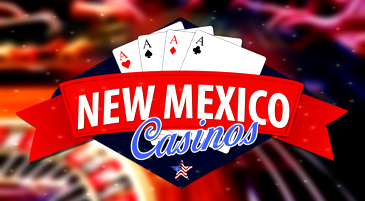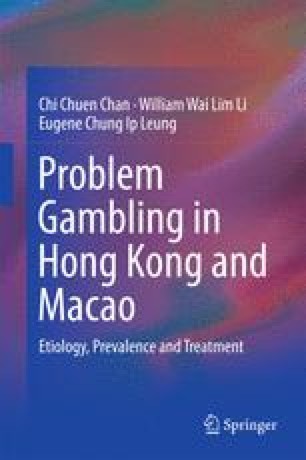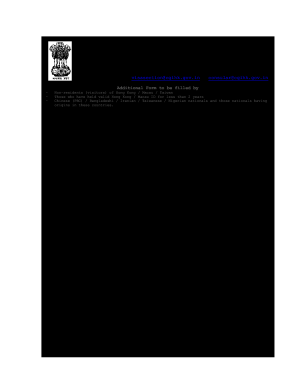Gambling Tax Hk
An overview of the licensing and tax regimes applicable to gambling activities in Hong Kong. The gambling tax is paid on a quarterly basis. Each gambling operator (even an illegal operator) is subject to gambling tax regardless of the location of its registered seat or main office, as long as its activities target the Czech market. The Government originally proposed the following increases: lotteries – from 23% to 30%. 3.19 As compared with other jurisdictions, the scenarios the participation of gambling activities of Hong Kong people were in line with experiences overseas. The prevalence of legal and authorized gambling (that is, Mark Six and local horse racing) among the general population aged 15-64, was 67.6% in Hong Kong.
Introduction
Hong Kong is one of the most attractive places in the world for investments in securities, such as shares, bonds, funds, futures and options. As a result, typical questions that may arise are related to i) whether the income/gains derived from those security investments, such as dividends, interests and disposal gains, are subject to any Hong Kong tax at the level of the recipient; and (ii) whether there would be any possible ways to mitigate the tax exposures, if any, in Hong Kong.
Relevant Hong Kong tax rules
Under the territorial source system, Hong Kong does not impose profits tax on a person (including a natural person, a company, a partnership and a trustee) if (i) the person does not carry on a trade/business/profession in Hong Kong from which the income is derived; and/or (ii) the person’s income is not arising in or derived from Hong Kong (i.e. not sourced in Hong Kong) pursuant to the general charging provision of the Inland Revenue Ordinance.
Also, Hong Kong does not levy any profits tax on gains arising from sales of capital assets (i.e. gains of capital in nature). As such, even in case a person would be carrying on a trade/business/profession in Hong Kong whereby the gain is sourced from Hong Kong, the gain will still not be taxable in Hong Kong as long as it can be qualified as capital in nature.
In view of the above-mentioned tax rules, investment income/gains can potentially be exempt from Hong Kong tax, but only as long the required conditions can be met.
Not carrying on a trade/business/profession in Hong Kong?
A company is generally considered as carrying on a trade/business/profession in Hong Kong if it is managed and controlled in Hong Kong, such as BVI company whose directors are residing in Hong Kong. In practice as well, the Hong Kong Inland Revenue Department (“HK-IRD”) considers a company incorporated in Hong Kong as a company that carries on a trade/business/profession in Hong Kong. As a result, it is more likely than not that such Hong Kong company, being a recipient of investment income, will be subject to Hong Kong tax (unless such income is satisfied as sourced outside of Hong Kong and/or capital in nature as further discussed in the paragraphs below).
For individuals however, when participating into security investments, different tests apply in order to test whether they carry on a trade or business in Hong Kong. Factors to consider for such individual are, but not limited, (i) his/her motive; (ii) whether or not the buying and selling of securities can be considered as his/her full time job; (iii) the length of his/her ownership in the securities; (iv) whether he/she has carried out successive or frequent similar transactions in the past; (v) whether he/she is relying on securities trading as the sole or dominant source of his/her income; and (vi) his/her reasons for the disposal of the securities.
Consequently, it can be argued that an individual making investments through a broker securities account, a rather popular activity in Hong Kong, is carrying on a trade/business in Hong Kong and that his/her income derived from those investments should be subject to Hong Kong profits tax.
Income not sourced in Hong Kong?
As a result of various case law and additional guidelines from the HK-IRD, different tax rules and tests are available for determining the source of the various types of investment income.
For example, in order to determine the source of interest, one may need to consider whether or not the provision of credit test is applicable. For example, if the funds have first been made available by lenders (e.g. bond holders) to borrowers (e.g. bond issuers) outside of Hong Kong, the provision of credit is likely to have taken place outside of Hong Kong, resulting into the interest income of these bonds to be sourced outside of Hong Kong and therefore non-taxable with Hong Kong tax. Please note that this test cannot be applied in all circumstances.
The source of gains from sales of investment securities, are however again subject to a different test. Major considerable factors include, but not limited to, (i) whether or not these securities are listed on a stock exchange; (ii) on which stock exchange these listed securities are being traded; (iii) from where the sale contract and purchase contract of the unlisted securities/securities traded through over-the-counter are being effected.
One has to note that the HK-IRD/the Court may also apply the totality of facts test (i.e. looking at all relevant factors/business activities) in determining the source of interest income and disposal gains. Further, the fact that there is no tax due in Hong Kong does not mean that taxes are not payable in another tax jurisdiction.
Gains of capital in nature?
In general, gains from sales of investment securities held for long-term investment purpose can potentially be qualified as capital in nature and thus non-taxable whiles those securities held for short-term trading purpose are trading in nature and taxable. Again, it is necessary to look at all the relevant facts and circumstances of each case when determining the nature of a gain. The relevant factors include but are not limited to (i) the taxpayer’s intention at the time of acquiring and holding the investment securities; (ii) the length of ownership of the investment securities; (iii) the frequency and regularity of conducting similar transactions; (iv) how the acquisition of the investment securities has been financed; (v) the reasons of the disposal; and (vi) the principal activity of the company (if applicable); and (vii) the classification of the investment securities in the company’s balance sheet (if applicable).
There have been a lot of tax disputes between the HK-IRD and taxpayers on the above-mentioned tax issues, some of which are appealed to the Board of Review (i.e. a tax tribunal) and even to the Court for determination. If one would like to conduct a tax review/analysis on a particular case(s), please feel free to contact us on +852 2804 0889 or by email taxservices@www.hkwj.xn--0deaa2cva.com.
If you have any questions regarding the above or other tax matters, please do not hesitate to contact us on +852 2804 0889 or by email taxservices@hkwj-taxlaw.hk.- Services
- EN


The Hong Kong Government Policy is to restrict gambling, other than social gambling, to a limited number of controlled authorised outlets. In this way, while the public demand for gambling is met, regulation ensures that gambling opportunities are not excessive and possible harm to the community is minimized. According to the Gambling Ordinance (Cap. 148), all gambling activities are illegal except those authorised by the Government which includes authorised horse racing, football betting and Mark Six lottery, and betting premises licenced by the Government or those exempted under the Ordinance.
Gambling Tax Hk Rate
The illegal gambling market is sizeable and growing exponentially. During the World Cup 2014, the Hong Kong Police Force mounted vigorous operations in the territory against illegal gambling activities, resulting in seizure of cash and betting slips amounting to more than HK$750 million, a record high.
Increasing junket activities and illegal web betting
Illegal gambling operators and their agents (or junkets) have becoming increasingly aggressive and active in Hong Kong. Junkets not only offer incentives and loans for gamblers, but also provide ferry tickets and hotel accommodations for their customers to gamble at offshore casinos or casino cruises. Offshore operators are also increasingly deploying loyalty programmes to recruit new and young customers which poses a serious threat to Hong Kong.
Profit-oriented illegal bookmakers lure customers with credit betting, better price incentives, and more bet types, irrespective of their age and financial status. By offering discounts and loans, they encourage customers to chase losses, resulting in heavy gambling debts. Round the clock gambling opportunities provided by illegal operators often lead customers to bet instantly and continuously, making them more prone to excessive gambling.
Fuelled by the advancement of mobile technology and widespread use of smartphones and tablet computers, illegal gambling platforms are more readily available to the public in recent years. A study tracking web traffic found that at least 230,000 local residents patronise illegal gambling websites each month. The betting loss incurred each year is estimated at HK$12 billion, which is equivalent to 60% of the Government’s Community Care Fund. Should the money be ploughed back to society, Hong Kong people can benefit enormously from the provision of 17,000 additional public housing units, 100 secondary schools and close to 300 elderly homes.
Gambling Tax Hk 2020

The amount of wagers Hong Kong people placed with illegal bookmakers tops hundreds of billions of dollars each year, which is double the HK$150 billion recorded by the authorised betting channels. This growing trend also aggravates the numerous social and criminal problems and activities it brings to the community.
Illegal gambling in Hong Kong:
Gambling Tax Changes For 2019
Illegal gambling is widely associated with criminal activities, in particular loan-sharking, money laundering, fraud and corruption.
Equally if not more damaging is the siphoning of public resources from the community. Illegal gambling operations neither pay tax in Hong Kong, nor make any contribution to Hong Kong charities.
In contrast, the Club is committed to providing regulated legal betting services to help the Government in combating illegal gambling in accordance with the Government’s Policy to restrict gambling to a limited number of controlled authorised outlets. Being a pioneer in responsible gambling practices, the Club implements a wide range of measures to encourage those who gamble to do so responsibly and to prevent underage gambling. It endeavours to strike a balance between meeting the demand for gambling while helping to minimise potential harm caused by gambling.